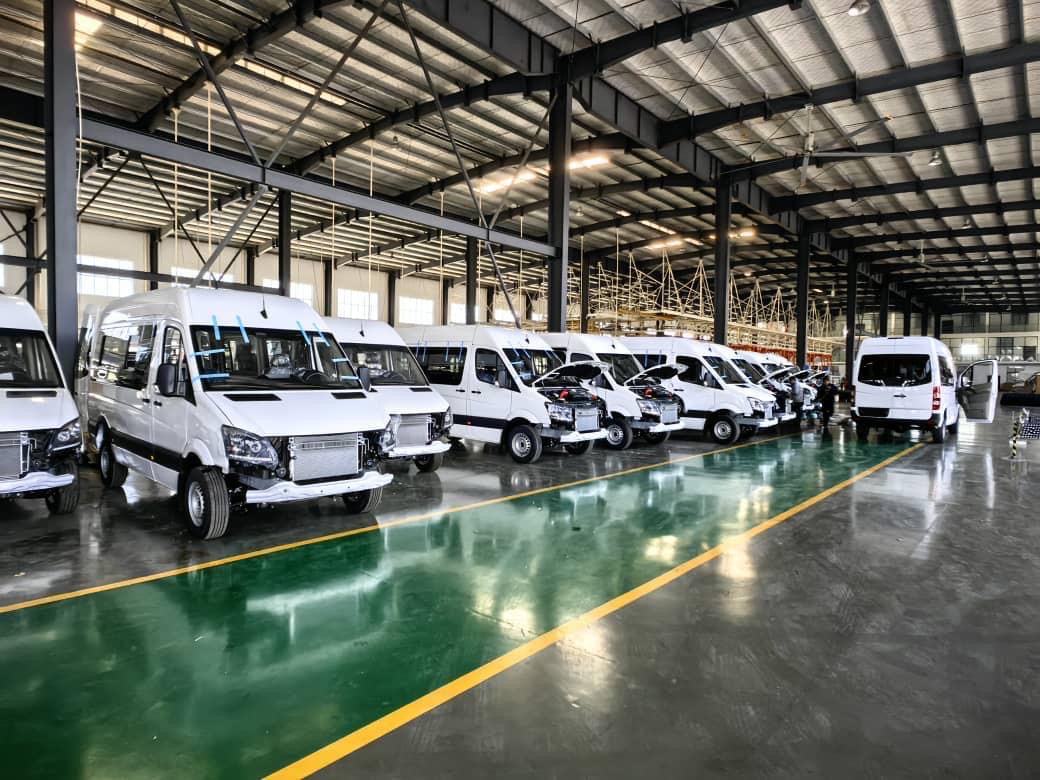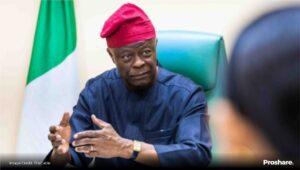
FG to launch 2700 CNG buses, tricycles before May 29
The Presidency on Sunday said it was ready to launch about 2,700 CNG-powered buses and tricycles before May 29 when President Bola Tinubu turns one year in office.
It said the Federal Government is set to deliver 100 conversion workshops and 60 refuelling sites spread across 18 states before the end of 2024.
The Special Adviser to the President on Information and Strategy, Mr. Bayo Onanuga, revealed this in a statement he signed Sunday titled ‘Presidential CNG initiative set for rollout.’
“From the end of May, Nigeria will take some baby steps to join such nations that already have large fleets of CNG vehicles.
“All is now ready for delivery of the first set of critical assets for deployment and launch of the CNG initiative ahead of the first anniversary of the Tinubu administration on May 29.
“About 2,500 of the tricycles will be ready before May 29, 2024…working towards delivering 200 units before the first anniversary of the Tinubu administration,” said the Presidency.
It added that in all, over 600 buses are targeted for production in the first phase which will be accomplished in 2024.
In October 2023, about five months after the removal of the petrol subsidy, President Tinubu launched the Presidential CNG Initiative to deliver cheaper, safer and more climate-friendly energy.
The CNG Initiative was designed to deliver compressed natural gas, especially for mass transit.
The Federal Government earmarked N100bn (part of the N500bn palliative budget) to purchase 5500 CNG vehicles (buses and tricycles), 100 Electric buses and over 20,000 CNG conversion kits, with plans to develop CNG refilling stations and electric charging stations nationwide.
The FG had said the initiative would ease the burden of the increased pump price on the masses.
“After months of detailed planning and background work, the committee driving the initiative is set to deliver on President Tinubu’s vision and promise,” Onanuga affirmed.
Part of Sunday’s announcement was the creation of a new plant on the Lagos-Ibadan Expressway that will assemble the tricycles while Brilliant EV will assemble electric vehicles when it receives the Semi Knocked Down components.
The Presidency explained further, “The SKD parts manufactured by the Chinese company LUOJIA in partnership with its local partner to support the consortium of local suppliers of CNG tricycles are set for shipment to Nigeria and expected to arrive early in May.
“In collaboration with the private sector, the PCNGI is set to deliver 100 conversion workshops and 60 refuelling sites spread across 18 states before the end of this year.”
Four plants owned by JET, Mikano, Mojo, and Brilliant EV located in various parts of the country are involved in the assembly of the semi-knocked-down components of the CNG buses, Onanuga revealed.
He added “JET, which has received the SKD parts is coupling the buses in Lagos and is working towards delivering 200 units before the first anniversary of the Tinubu administration.
“Brilliant EV will assemble electric vehicles. It is awaiting the SKD parts, which will arrive in due course. The electric vehicles it will produce are meant for states such as Kano and Borno, which do not have access to CNG for now.
“They will also be available in key Nigerian cities and university campuses. It must be noted that soon-to-be-completed gas pipeline projects initiated by the Buhari administration and being completed by NNPCL (the AKK Pipeline) will take gas into the hinterlands of North East and North West where there is a current paucity.”
Onanuga said the deployment of CNG buses and tricycles and the vision to get at least one million natural gas-propelled vehicles on our roads by 2027 will mark a major energy transition in our country’s transportation industry.
With necessary tax and duty waivers approved by President Tinubu in December 2023, the PCNGI committee is partnering with the private sector to deliver the promise on the initiative, he explained further.
Therefore, the private sector has so far responded with over $50m in actual investments in refuelling stations, conversion centres and mother stations.
Also, a safety policy document on 80 standards and regulations that must be strictly adhered to by operators has been developed and approved to ensure CNG conversions are done safely and reliably.
The FG also plans to sell thousands of conversion kits for petrol-powered buses and taxis that want to migrate to CNG at subsidised rates, especially to commercial vehicle drivers to bring down the cost of public transportation.
The Presidency said as part of private sector collaboration, NIPCO and BOVAS are involved in offering refilling services for the CNG vehicles and also serving as conversion centres.
“NIPCO is setting up 32 stations nationwide to offer the services. The company has completed the set-up of four of the CNG stations.
“Likewise, BOVAS is setting up eight stations in Ibadan, two each in Ekiti, Abuja and four in Ilorin. MRS is also involved.
“It is making efforts to announce where its refilling stations and conversion centres will be,” the Presidential aide explained.




